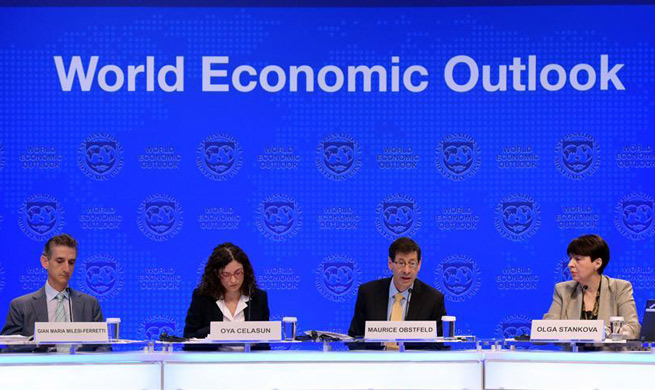WASHINGTON, Oct. 10 (Xinhua) -- While tightening global monetary policies would put more pressure on short-term liquidity in frontier markets (FMs), Chinese financing could help mitigate liquidity risk for these countries, said Moody's, a ratings agency, in a report released on Monday.
Moody's defines FMs as sub-investment-grade countries that rely heavily on concessional financing. Moody's rates 36 FM countries, most of which carry ratings in the B1-B3 range.
"Benign global liquidity conditions have permitted some FMs to raise commercial U.S. dollars sovereign debt, at relatively favorable rates," Anne Van Praagh, a Moody's Managing Director, said. "One quarter of FMs had issued new debt on commercial terms as of August 2017."
"Looking ahead, as global liquidity conditions evolve, elevated debt service costs and liquidity risks are key credit challenges for FMs," she added.
The most vulnerable sovereigns are those with larger external vulnerabilities, limited domestic fiscal policy space, high gross borrowing needs and low institutional strength, the report said.
Higher global interest rates could limit market access and significantly raise debt servicing costs for sovereigns with a material proportion of externally financed debt and large gross borrowing requirements.
According to the report, liquidity risks are most acute in Egypt, Pakistan and Mongolia.
"Financing from China through foreign direct investment and swap line arrangements has become more important for some FMs, 16 of which are listed under China's Belt and Road Initiative," said the report.
"Chinese financing could help mitigate near-term liquidity risks," said the report.
"It is encouraging a shift away from financing by international financial institutions, which have historically provided a stable funding source, including on concessional terms."

















